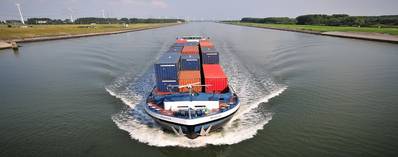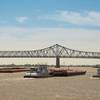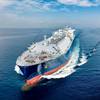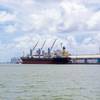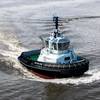Jaco Osseweijer of Verweij & Hoebee, a subsidiary of BMT Group, is an expert on inland navigation vessels. As Chairman of the technical committee of the Netherlands Bureau for Inspections of inland navigation vessels (NBKB) he is involved in the mandatory inspection regime for these vessels and explains how the system works.
To those involved with deep sea or blue water shipping, brown water shipping is a bit of a mystery. The extent and variety of ships using the world’s major rivers is vast. For example, the Rhine is Europe’s busiest inland waterway, with an estimated 7,000 vessels using the river, representing a capacity of over 10 million metric tons. This includes 4,500 motor cargo vessels, 1,300 tankers, 1,200 pushed barges and tugs and hundreds of passenger ferries. Some 600 vessels cross the Dutch/German border daily, carrying over 200 million metric tons of cargo annually. A significant part of this cargo has originated or has been transhipped from the port of Rotterdam, where 133,000 inland vessels called last year. By using the Rhine-Maine-Danube-Black Sea Canal, cargoes from Central and Northern Europe can be transported directly to the Black Sea.
The Netherlands has a major role in inland transport; with more than 6,000 vessels it has the largest inland fleet of Western Europe. The government department in Holland tasked with regulating vessels is the Dutch Shipping Inspectorate (Inspectie Leefomgeving en Transport). The Inspectorate decided that regulatory inspections and the issuing of inland vessel certificates should be divested to nongovernmental organizations. To this end, the ‘non-profit’ organization Nederlands Bureau Keuringen Binnenvaartschepen (NBKB), based in Rotterdam, was founded in 2004 and it was authorized to inspect inland vessels based on rules and regulations (Rhine, EU and national rules), except for tankers which are obliged to maintain class.
Since the end of 2013, the Netherlands Shipping Inspectorate has also authorized the NBKB to “perform statutory certification services” and issue certificates, including approval of drawings. Every inland vessel including general cargo vessels, push boats, tugs, barges, passenger vessels and ferries has to have a valid Inspection Certificate on board. A substantial number of the surveyors qualified to perform these surveys and issue the certificates are attached to NBKB. These surveyors are technically qualified and cognizant of all the complex rules and regulations that govern the vessels permitted to trade on European inland waterways, such as the Rhine. Statutory inspections include (new building) hull surveys (such as steel thickness measurements, alarms, machinery, electrical installations, steering gears and checks on vessel maneuverability performance) and safety inspections of firefighting equipment and lifesaving appliances.
Also, NBKB surveyors can be called upon to survey damage or approve repairs after incidents, such as a collision, or after certain repair work (including work carried out at the behest of the Inspectorate).
Verweij & Hoebee can service their (inland) relations in damage surveys, condition surveys, valuations etc. and, by performing NBKB inspections, also in certifying. This results in an extended knowledge, which is very useful and can be applied in other kinds of surveys.



